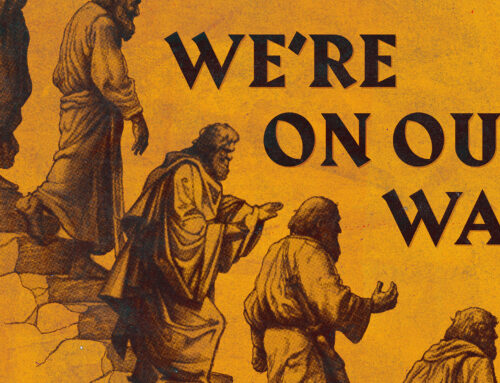Carl Jung
Umberto Eco
Adolf Hitler
Karl Barth’s image appears as the featured image on the Home Page of this article.
RELATED ARTICLE: Alethophobia
Umberto Eco, Carl Jung, Karl Barth and Hitler on Islam and Nazism
“It is impossible to understand National Socialism unless we see it in fact as a new Islam.”
July 24, 2023
By
Reprinted from FrontPageMag
In a speech that he gave at Columbia University, Umberto Eco spelled out fourteen features that he considered were typical of “Eternal Fascism” (which he also calls Ur-Fascism), and I have shown that all fourteen features were present in Islam.[1] Charles Watson,[2] and G.-H. Bousquet[3] refer to Islam as a totalitarian system tout court, while Bertrand Russell[4], Jules Monnerot[5], and Czeslaw Milosz[6] compare Islam to various aspects of communism, and finally, there are those who note the resemblance of Islam to Nazism, among others, Carl Jung[7]. Jung was asked in the late 1930s in an interview if he had any views on what was likely to be the next step in religious development. He replied, referring to the rise of Nazism in Germany, “We do not know whether Hitler is going to found a new Islam [emphasis added]. He is already on the way; he is like Muhammad. The emotion in Germany is Islamic; warlike and Islamic. They are all drunk with wild god. That can be the historic future.”
Karl Barth[8] also reflected on the threat of Hitler, and his similarities to Muhammad:
Participation in this life, according to it the only worthy and blessed life, is what National Socialism, as a political experiment, promises to those who will of their own accord share in this experiment. And now it becomes understandable why, at the point where it meets with resistance, it can only crush and kill—with the might and right which belongs to Divinity! Islam of old as we know proceeded in this way. It is impossible to understand National Socialism unless we see it in fact as a new Islam [emphasis in original], its myth as a new Allah, and Hitler as this new Allah’s Prophet.
A prayer for the ruling National Socialism and for its further expansion and increase simply cannot be uttered—unless one wishes to strike his confession in the face and make nonsense of his prayer. But there is one prayer with regard to the ruling National Socialism which may be uttered and ought to be uttered. It may and has to be prayed, in all earnestness, by Christians in Germany and throughout the whole world. It is the prayer which was uttered right into the nineteenth century, according to the old Basel Liturgy: “Cast down the bulwarks of the false prophet Muhammad!”…And there we have it—we stand today, all Europe, and the whole Christian Church in Europe, once again in danger of the Turks [emphasis in original]. And this time they have already taken Vienna and Prague as well. “Thy will be done!” “If I perish then I perish!” They really knew that at the time of the old Turkish menace. They knew it better, knew it with more resignation to the will of God and less querulousness than we today do.
Thus Carl Jung, and Karl Barth[9], but also Maxime Rodinson[10], and Manfred Halpern[11], all recognize Islam’s similarities to fascism or National Socialism (the latter two terms often used synonymously); and, last but not least, Adolf Hitler.[12]
Albert Speer, who was Hitler’s Minister of Armaments and War Production, wrote a memoir of his World War II experiences while serving a 20-year prison sentence imposed by the Nuremberg tribunal. Speer’s narrative includes this discussion which captures Hitler’s racist views of Arabs on the one hand, and his effusive praise for Islam on the other:
Hitler had been much impressed by a scrap of history he had learned from a delegation of distinguished Arabs. When the Mohammedans attempted to penetrate beyond France into Central Europe during the eighth century, his visitors had told him, they had been driven back at the Battle of Tours. Had the Arabs won this battle, the world would be Mohammedan today. For theirs was a religion that believed in spreading the faith by the sword and subjugating all nations to that faith. Such a creed was perfectly suited to the Germanic temperament. [emphasis added] Hitler said that the conquering Arabs, because of their racial inferiority, would in the long run have been unable to contend with the harsher climate and conditions of the country. They could not have kept down the more vigorous natives, so that ultimately not Arabs but Islamized Germans could have stood at the head of this Mohammedan Empire. Hitler usually concluded this historical speculation by remarking, ‘You see, it’s been our misfortune to have the wrong religion. Why didn’t we have the religion of the Japanese, who regard sacrifice for the Fatherland as the highest good? The Mohammedan religion too would have been much more compatible to us than Christianity. Why did it have to be Christianity with its meekness and flabbiness?’”
—–
[1] Umberto Eco, The New York Review of Books, June 22, 1995, pp.12-15, and my article “Islam, the Middle East, and Fascism”, in Virgins? What Virgins? And Other Essays, Amherst (NY): Prometheus Books, 2010, pp.255-288.
[2] The Muslim World, January 1938 (Vol. 28 Issue 1 Page 1-107), p.6.
[3] G.-H.Bousquet [1900-1978]. L’Ethique sexuelle de l’Islam. Paris: Desclée de Brouwer. 1990 [Ist edn.1966], p.10.
[4] Bertrand Russell, The Practice and Theory of Bolshevism. London: George Allen and Unwin, 1920 pp.5,29,114.
[5] Jules Monnerot. Sociologie du Communisme, Paris: Gallimard, 1949. [English translation by Jane Degras and Richard Rees. Sociology and Psychology of Communism, Boston: Beacon Press, 1953]
[6] Czeslaw Milosz, The Captive Mind. Translated from the Polish by Jane Zielonko. New York:Vintage Books, 1959, pp.51-77.
[7] Carl Jung. The Collected Works Volume 18, The Symbolic Life, 1939, Princeton, Princeton University Press p. 281.
[8] Karl Barth. The Church and the Political Problem of Our Day, New York: Scribner, 1939, pp. 43; 64-65.
[9] I owe the references for Jung and Barth to Dr. Andrew Bostom.
[10] Maxime Rodinson. Islam Resurgent? Le Monde, December, 6-8, 1978, quoted in Janet Afary and Kevin B.Anderson. Foucault and the Iranian Revolution. Gender and the Seductions of Islamism. Chicago: The University of Chicago Press, 2005, p.233.
[11] Manfred Halpern. Politics of Social Change in the Middle East and North Africa Princeton: Princeton University Press, 1963, quoted at Martin Kramer’s Wesbsite: http://www.geocities.com/martinkramerorg/2006_09_20.htm, Accessed October, 22, 2007.
[12]Albert Speer. Inside the Third Reich. 1970, New York: The Macmillan Company, p. 96.









Leave a Reply, please --- thank you.